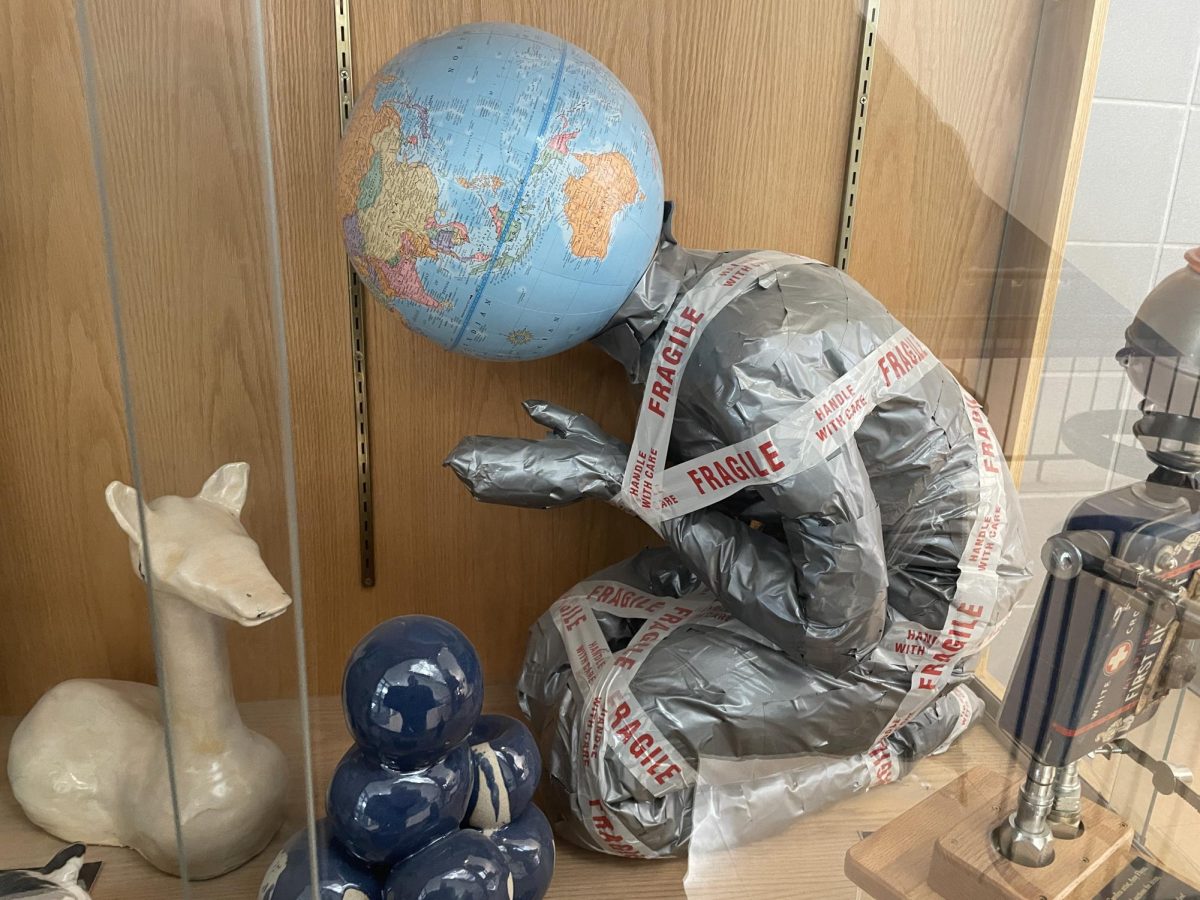In recent years, a new type of anxiety has emerged among high school students. Though high school has always been a stressful time for teenagers, the internet has created an environment where teenagers can now be constantly barraged with bad news through the internet and social media, making them more stressed than ever about societal issues and the future of the world. According to the American Psychological Association, more teens than adults feel stressed by societal issues, with two-thirds of teenagers expressing significant stress about the future of the country. Climate change, in particular, has become a major source of existential stress for many teens, with 56% of 16-25-year-olds in a 2021 global survey stating that they believe “humanity is doomed.” These results depict a bleak view of our generation’s vision for the future: the collapse of civilization.
The students of Boulder High School reiterate these beliefs. In a recent survey by The Owl, we found that 73.9% of people think that future generations will be worse off than us, and 70.1% think that the world in modern times is getting worse. A massive 83.6% of students also said that climate change is a civilization-ending threat to humanity. These are worrying statistics considering that our high schoolers represent the future of society and correlating the future of the world with doom and human suffering is not only terrible for teen mental health but also could affect the way that they plan their future. Our statistics support this, saying that 44.4% of students do not plan to have children in adulthood. Those who responded that climate change is a civilization-ending threat were far more likely to select this option, proving that anxiety about climate change affects how young people plan their lives.
The media plays a pivotal role in shaping these fears, often using language designed to instill fear and anxiety in the audience. For example, in a 2021 article about Climate Change, the popular media source The Guardian said that “Earth is already becoming unlivable”. CNN has called it the “Climate Apocalypse”. The news source Vox wrote that based on current projections of climate change, “At worst, human civilization would come to an end” and listed it as one of the most likely ways for humanity to die out.
This kind of language coming from trusted media sources evokes responses of fear in their readers, and while this is good for media companies who want more interest in the topics they are covering, it is one of the main factors of climate anxiety in young people. Social media is another main force of anxiety, as users are constantly bombarded with bad news about the world. Fear-mongering about issues such as climate change drives engagement, which makes it more likely to be recommended to users than positive or unbiased information. This creates serious issues for teenage mental health, as according to a 2022 study, social media-driven climate anxiety is associated with higher rates of depression, anxiety, stress, and functional impairment in teens. Unsurprisingly, repeatedly hearing the message that the world is doomed does not bode well for young people’s mental health.
The problem with this recent trend of climate anxiety is that the fear of the collapse of human civilization is largely unfounded. According to a report by the Massachusetts Institute of Technology, the majority of climate scientists do not believe that a collapse of civilization or the extinction of humans is imminent due to climate change. According to the UN, global temperatures are on track to rise 2.6 degrees Celsius above pre-industrial levels, which is not a civilization-ending scenario. However, whether we will actually see an increase in temperature this great is uncertain. According to the International Energy Agency, global emissions will begin to drop for the first time in 2024, which is a positive but unexpected step in the right direction. In fact, the world is making steady progress towards preventing the worst of global warming. According to the New York Times, “Thanks to astonishing declines in the price of renewables, a truly global political mobilization, a clearer picture of the energy future and serious policy focus from world leaders, we have cut expected warming almost in half in just five years.” The world is making progress on preventing the worst scenarios of climate change, and this progress is making a civilization-ending scenario extremely unlikely.
However, even with this data teenagers still seem to think that climate change presents a threat to humanity and their future lives. Our polls show that a majority of high schoolers think that the world is getting worse, future generations will be worse off than us, and climate change could end civilization. Interviews with BHS students tell a similar story. When asked if the world will be worse off in the future, Owen Gallagher, 25, said “It will be worse off unless we fix climate change.” Joseph Biesecker, 25, agreed with this statement, saying there will be a “Hotter climate, rising sea levels, denser population in areas that are unlivable, unless we go to space, then they’ll be living better.”. Gia Marciano, 24, echoed his sentiment, saying “I’m a little bit afraid of climate change because I feel like the sea level is rising and a lot of the land will be submerged.” All interviewees agreed that they feared the future effects of climate change.
The anxiety that young people in our school and in our country hold about climate change frankly does not make sense. Although some effects of climate change will certainly cause struggles in developing countries that are not as well equipped to deal with rising temperatures and more natural disasters, it is extremely unlikely that the lives of people in first-world countries like the United States will be greatly affected by the most likely climate scenarios. Developed countries have sufficient resources to deal with climate change, and daily life for the vast majority of people will continue as normal, with as little of a survival risk as we face today.
When looking at the future, people also often forget that life on Earth is consistently improving for most people in the world. The world has been on a course of tremendous improvement in the 21st century, with the global extreme poverty rate falling from 29.1% in 2000 to 8.1% in 2020, global GDP per capita more than doubling from the start of the century, and average HDI increasing by 21.7% globally from 1990. People are living longer, better lives with more income and access to goods and services than ever before, and these trends are only expected to continue in the future. The world is getting better, and even with the threat of climate change future generations will almost certainly be better off than we are.
Although the future will likely only get better both globally and in the United States, young people are still more anxious than ever about the state of the world. Climate anxiety is taking a toll on our youth and it is currently a far worse problem for teens than climate change itself. Constant exposure to apocalyptic narratives in the media not only leads to mental health issues in teens, it also makes them feel helpless and powerless in their own future. The expectation of impending catastrophe can lead to apathy about the future in our teens, which is why instilling a belief of doom in them could further harm society. Until climate hysteria stops being pushed on our youth, a large portion of teens will continue to look to the future with negativity instead of enthusiasm.



